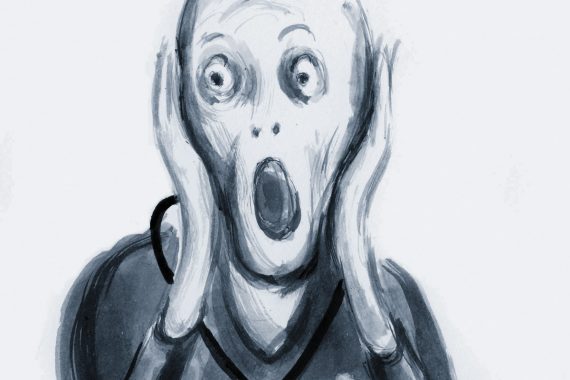Neighbourhood ME/CFS care should energise GPs

Copperfield on why the biggest winners from ME/CFS clinics might be GPs, not patients
Well, that’s interesting. Apparently, those new neighbourhood health services they have these days are going to support the delivery of ME/CFS care.
So let’s think. That means an illness of unknown cause, with no diagnostic test, no specific pharmacotherapy and no clear consensus around management strategies is going to be supported by an NHS organisational structure which is currently conceptual rather than actual, run by staff as yet undiscovered, in neighbourhood health centres that at this point don’t exist.
Which makes me think that, if depression isn’t already a feature of ME/CFS (another controversy), then it soon will be.
Although, to be uncharacteristically doctor-centric, maybe I’m missing the point. Perhaps the main beneficiaries of clinics like these – actual or speculative – are not the patients, but us GPs.
Because, to be brutally frank, I can’t think of a single patient who has returned from a referral to a CFS clinic, a Long Covid Clinic, a fibromyalgia assessment or the CBT wing of a pain clinic – each for that ‘holistic’ approach so important in these cases – and said, ‘That was really positive/helpful/constructive’. It just doesn’t happen. And for ‘holistic’, read: stuck in a hole.
There may be many reasons for this:
- Perhaps I only see, post clinic-input, the dissatisfied and disenfranchised. Maybe there are, in fact, many patients with CFS/Long Covid/fibromyalgia/chronic pain who are discharged from their respective outpatients so transformed that they never feel the need to return to me with a ‘What a waste of time that was, now what?’ expression on their face.
- Human nature being what it is, patients are hoping for an FP10 magic bullet, which obviously a feckless GP can’t/won’t prescribe but maybe a proper specialist will. And instead, they get lots of talky-talky/walky-walky stuff. They go with hopefulness, they get mindfulness and they return to give me earfulness.
- GPs go all telesales and overegg what these clinics can realistically provide and what they can actually achieve.
Maybe it’s a combo of all three. But to be honest, none of us believe ‘1’, ‘2’ is partially correct, and ‘3’ is a massive and inconvenient truth. Of course we oversell these services. For one thing, we’ve by definition reached an impasse, or we wouldn’t be referring, so we have to kid ourselves it might achieve something. And for another, if we don’t big-up the clinic, the patient might not attend.
All of which means I’m complicit in a system whereby I peddle an illusion of hope to the patient, while relishing the reality of the temporary relief referral gives me. Which I think means I’m knowingly fobbing the patient off to give myself a break. Which in turn means I’m appalling. But it’s easier to be appalling than to explain to patients that medicine can’t cure everything. If only there was a clinic that could do that for us.
Dr Tony Copperfield is a GP in Essex
Related Articles
READERS' COMMENTS [11]
Please note, only GPs are permitted to add comments to articles













brilliant!
Dear Dr Copperfield, I am not happy about your article!!! In fact, I’m fuming! I’m disgusted! I’m I’m….I’m dead knackered, can’t keep my eyes open…I’m zonked out and ready to drop like a wilted lettuce…I’m absolutely……….Zzzzzzzzz
Mr X Orsted
missed the point
Add one more thing to the list of mandatory training. Remember when it was AF a few years ago? Now it’s a full day Oliver McGowan training! And next, CFS/ME. My money’s on “ADHD awareness” for 2026/27. Though sepsis is back in the Pulse headlines so that might pip it to the post.
Who the hell comes up with these ideas ? I keep imagining them in that nice “3rd of May “ Goya painting .
I often think we lost something by letting the made up ME tag gain any medical acknowledgement. NICE should have had Chronic fatigue syndrome guidance. It is a syndrome until a true pathological describable process creates a disease name or some genius with the answer gets to add their eponym.
Dear Dr Copperfield, please ignore my partner Xand’s letter, that idle slug. Only yesterday I told him to put out the bins, do some weeding, fix the mouldy ceiling, and do the ironing….yet 20 minutes later I found the bin tipped over, the cat eating the chicken bones and him with his ugly mug in my lobelias, snoring like a battered trumpet. He keeps going on about ME ME ME…..I’ve no idea why.
Miss Mona Millstone
Just reading your column and the backstory on recovering from surgery and a general anaesthetic.
As going back to theatre and the realm of unconsciousness is not an option I’m going to have to ask for more pain meds…….
And if all else fails, you can always turn to the last refuge of the clinically bereft scoundrel and check their Vit D, which is statistically almost certain to be low, providing a harmless pseudo treatment for a pseudo diagnosis in a vindicated patient
.(see also Zn/Mg/Folate, all frequently fractionally below Normal Range , providing a handy placebo, a satisfied patient “taken seriously” by a proper doctor, and no need to fill out that God awful ME referral form that will be rejected any way because you missed off B12 in your meaningless expensive pointless blood tests)
Grim, the bellied waste spreads over
saltbush, scrub and soil
And bone of child.
Gone are the covenanted days…
Silence pours the unsaid
in the House of Abomination, thieves
who stole it all.
No weeping, no gnashing please…
Please don’t cry, she said
I’m not crying, he replied, I’m laughing
Lobelias lie killed in the border
Bed of spray of red
Meagre, too meagre pickings
So the bird flew away…
Everyday I am happier about retiring as a GP partner.